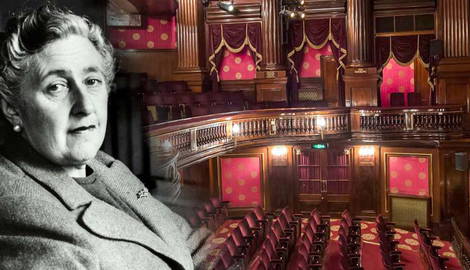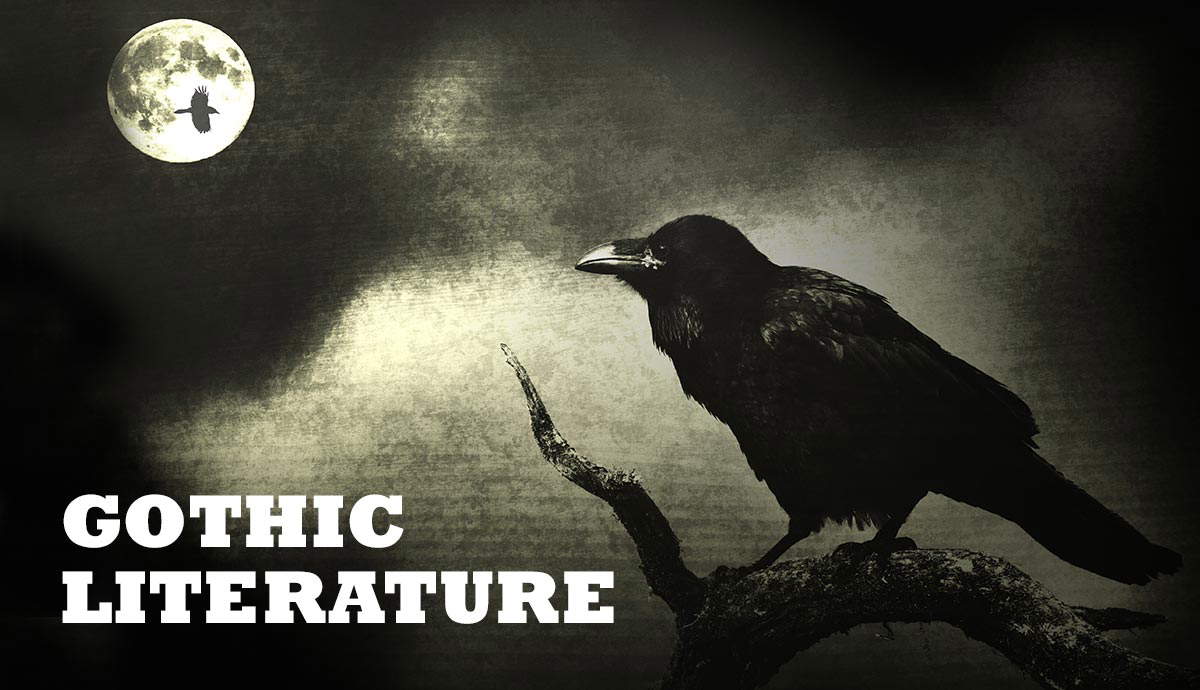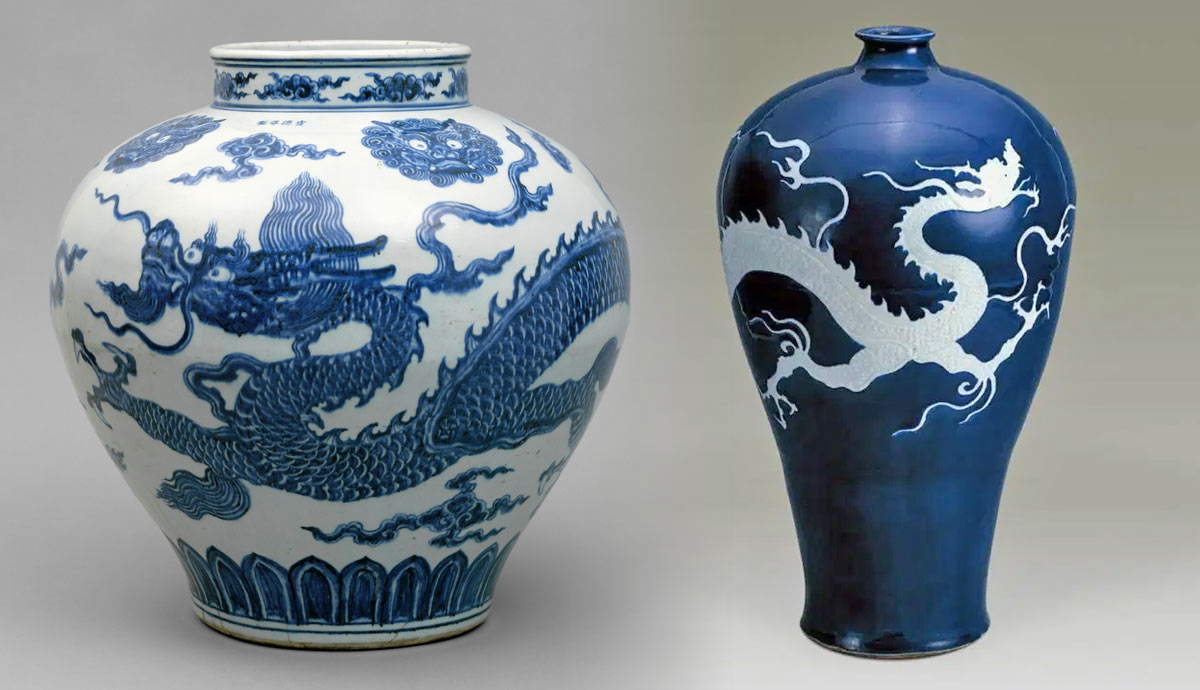
Renowned as the “Queen of Crime” for her iconic detectives such as Hercule Poirot and Miss Marple, many readers never learn that Christie was also an avid fan of theater and quite the playwright herself. Lovers of Christie’s work are missing a significant aspect of the author’s career and life if they never delve into her theater pieces.
Born from her childhood love of the theater, Christie came to write more than 20 plays over the course of her career. She broke records, and to this day, Christie remains the only female playwright to have three plays on production simultaneously in London’s world-famous theater district, West End. Christie was known for her murders, but, as Julius Green writes in his book Curtain Up: Agatha Christie: A Life in Theatre, “Theatre, on the other hand, was her lifelong passion” (2015, p. 22).
Christie’s Introduction to the Theater

“One of the great joys in life was the local theatre. We were all lovers of the theatre in my family. Madge and Monty went practically every week and usually I was allowed to accompany them. As I grew older it became more and more frequent.”
― Agatha Christie, Agatha Christie: An Autobiography, 1977, p. 107
In her autobiography, Agatha Christie fondly recalls a childhood tradition of attending the local theater with her siblings while living in Torquay. Though unsure whether or not it was the first play she ever saw, the first she remembers was a melodrama titled Hearts are Trumps. The closing scene, involving a character dangling from a rope and dying heroically for love, remained vivid in her memory.

Beyond simply attending the theater in her youth, Christie, in a way, participated. Though she was never cast in a production, Christie’s family was close to another called the Mallocks. She occasionally acted in the plays the family held in their manor, Cockington Court.
Unsurprisingly, Christie was also a fan of Shakespeare. However, she resented the way most schools approached his works, declaring, both in 1973 to The Times and in her autobiography, that his works must be experienced as Shakespeare intended: on stage.
She held the firm belief that Shakespeare was “ruined” by the school system. The bard had such an influence on Christie that some of her book titles are quotes from Shakespeare’s work. Some examples include Absent in Spring, taken from the opening of “Sonnet 98,” Taken at the Flood from Julius Caesar, and By the Pricking of My Thumbs from Macbeth.
Birth of a Playwright and Black Coffee

Unsurprisingly, given her success as an author, playwrights of the early to mid-twentieth century were inspired by Christie’s novels and took to making their own adaptations for the stage, as was a common practice. In 1928, Michael Morton’s play Alibi, an adaptation of Christie’s The Murder of Roger Ackroyd, hit the stage at the Prince of Wales Theatre in London. Christie was not a fan:
“I much disliked his first suggestion, which was to take about twenty years off Poirot’s age, call him Beau Poirot and have lots of girls in love with him… I strongly objected to having his personality completely changed.”
― Agatha Christie, Agatha Christie: An Autobiography, 1977, p. 434
Only two years after this, Christie’s first published play, Black Coffee, hit the stage.
“I had no idea when the idea was first suggested what terrible suffering you go through with plays, owing to the alterations made in them. I had already written a detective play of my own, I can’t remember exactly when. It was not approved of by Hughes Massie; in fact they suggested it would be better to forget it entirely, so I didn’t press on with it. I had called it Black Coffee. It was a conventional spy thriller, and although full of cliches, it was not, I think, at all bad. Then, in due course, it came into its own. A friend of mine from Sunningdale days, Mr Burman, who was connected with the Royalty Theatre, suggested to me that it might perhaps be produced.”
― Agatha Christie, Agatha Christie: An Autobiography, 1977, p. 433

Black Coffee, despite having Poirot as a protagonist, was not an adaptation. It was a Poirot mystery written in play form. The piece revolves around a poisoned physicist and a missing formula on how to create an atomic bomb. The play landed in the London West End, a significant accomplishment for playwrights, and remains notable not just for being Christie’s first play but also for being her last full-length production to feature her famous Belgian detective.
In later play adaptations of her books, she supposably cut Poirot out because she was concerned that he would be played as a caricature or in a manner untrue to the way she wrote him—a worry perhaps in part due to the disappointing Morton play.
After Black Coffee, Christie continued writing a mix of adaptations and original plays. Theater had always been a source of enjoyment for her, and she found that she enjoyed the creation of plays much more than writing books. In Christie’s mind, books were work—produced for money—whereas plays were more for her own entertainment.
“Why not write a play instead of a book? Much more fun. One book a year would take care of finances, so I could now enjoy myself in an entirely different medium.”
― Agatha Christie, Agatha Christie: An Autobiography, 1977, p. 433
Must See Plays
For fans who are only familiar with her riveting novels, it may be somewhat difficult to determine which plays to begin with for their introduction to Christie as a playwright. However, despite there being over twenty plays to choose from, the following three serve as an excellent introduction.
1. The Mousetrap

This play is about a group of strangers snowed into an isolated guesthouse in the countryside. Soon, a police sergeant involved in an investigation of a murder in London enters the scene and informs the characters that the murderer he is searching for is in their midst.
The Mousetrap is perhaps the most famous of Christie’s plays, and for good reason. Beyond its high quality, the play holds two records in the Guinness Book of World Records for continuous runs. After its release in 1952, the play had 8,862 continuous runs at the Ambassador’s Theatre in London, making it the longest play continuously run at one theater, before a quick shift in 1974 to St. Martin’s Theatre so as not to break the streak. It continued there, running continuously, until COVID-19 shut down theaters in 2020, resulting in the first break in performances in nearly 70 years.

“And now, as I write, it is just coming to the end of its thirteenth year, and has had innumerable casts. The Ambassadors Theatre has had to have entirely new seating–and a new curtain. I now hear it has got to have a new set–the old one is too shabby. And people are still going to it. I must say it seems to me incredible. Why should a pleasant, enjoyable evening’s play go on for thirteen years. No doubt about it, miracles happen.”
― Agatha Christie, Agatha Christie: An Autobiography, 1977, p. 433
2. Witness for the Prosecution

Witness for the Prosecution follows Leonard Vole, a man accused of the murder of a wealthy woman named Emily French. After lying to her about his marital status and her leaving him her entire estate, Leonard insists upon his innocence.
Premiering in London in 1953, this play is known for being Christie’s favorite. It was such a hit that, in 1957, American director Billy Wilder adapted it into a film. Though the play does not have the same accolades as The Mousetrap, the film received six Academy Award nominations, five Golden Globe Nominations, a win for the category “Best Actress in a Supporting Role,” along with other smaller awards.
“One night at the theatre stands out in my memory especially; the first night of Witness for the Prosecution. I can safely say that that was the only first night I have enjoyed.”
― Agatha Christie, Agatha Christie: An Autobiography, 1977, p. 51
3. And Then There Were None

Appealing to fans who love Christie classics, this play is a three-act adaptation of Christie’s iconic book of the same name. It largely follows the plot of its source material, with a few changes. It premiered in London in 1943. Soon after, it was picked up by Broadway and opened in New York City just a year later.
Curtain Closed

By the end of her career, she grew to dislike Poirot, calling him “insufferable” and a “detestable, bombastic, tiresome, ego-centric little creep.” However, she did not feel the same for the theater, even though many of her plays follow themes similar to those of her novels.
Towards the end of her life, Christie fondly recalls taking her grandson out to the theater, much like her siblings and grandmother took her as a child. It was her passion and where she felt the most creative freedom. Though her plays may not have the same renown as her prose, Christie’s impact on the world of theater is undeniable.
“The theatre had never stopped being a regular part of my life.”
― Agatha Christie, Agatha Christie: An Autobiography, 1977, p. 51










